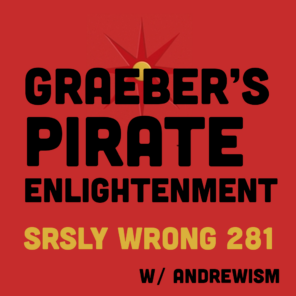David Graeber’s final posthumous work, Pirate Enlightenment, or the Real Libertalia, explores the rich history of pirate societies and their influence on the Enlightenment. Rooted in David’s field research in Madagascar, the book examines how the Zana-Malata, descendants of pirates, practiced protodemocratic governance. Challenging the European-centric view of Enlightenment thought, David reveals non-European contributions to “Western” ideas and highlights alternative social orders that offer new possibilities for the future.
Pirate Enlightenment, or the Real Libertalia
Pirates have long lived in the realm of romance and fantasy, symbolizing risk, lawlessness, and radical visions of freedom. But at the root of this mythology is a rich history of pirate societies—vibrant, imaginative experiments in self-governance and alternative social formations at the edges of the European empire.
In graduate school, David Graeber conducted ethnographic field research in Madagascar for his doctoral thesis on the island’s politics and history of slavery and magic. During this time, he encountered the Zana-Malata, an ethnic group of mixed descendants of the many pirates who settled on the island at the beginning of the eighteenth century. Pirate Enlightenment, or the Real Libertalia, Graeber’s final posthumous book, is the outgrowth of this early research and the culmination of ideas that he developed in his classic, bestselling works Debt and The Dawn of Everything (written with the archaeologist David Wengrow). In this lively, incisive exploration, Graeber considers how the protodemocratic, even libertarian practices of the Zana-Malata came to shape the Enlightenment project defined for too long as distinctly European. He illuminates the non-European origins of what we consider to be “Western” thought and endeavors to recover forgotten forms of social and political order that gesture toward new, hopeful possibilities for the future.
Dutch
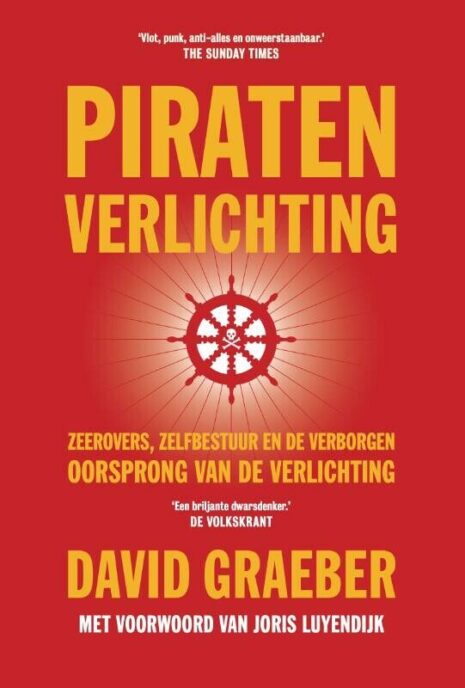
Rogier van Kappel
Pages: 208English
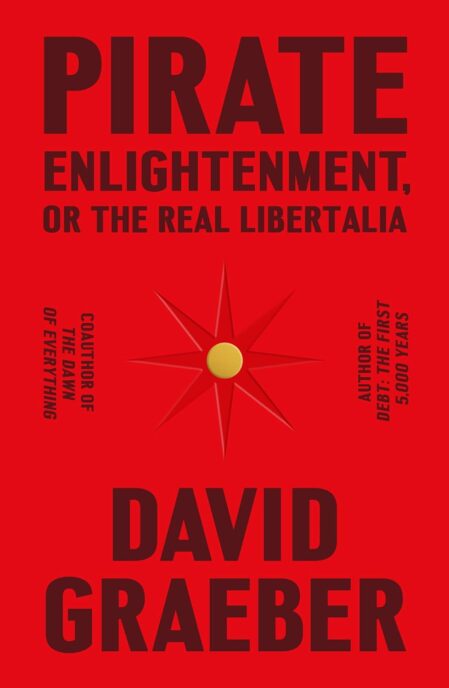
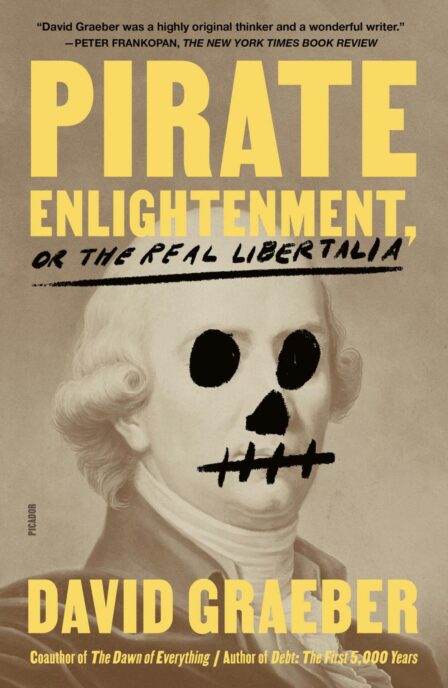
French

Philippe Mortimer
Pages: 240German

Werner Petermann
,Werner Roller
Pages: 256Italian
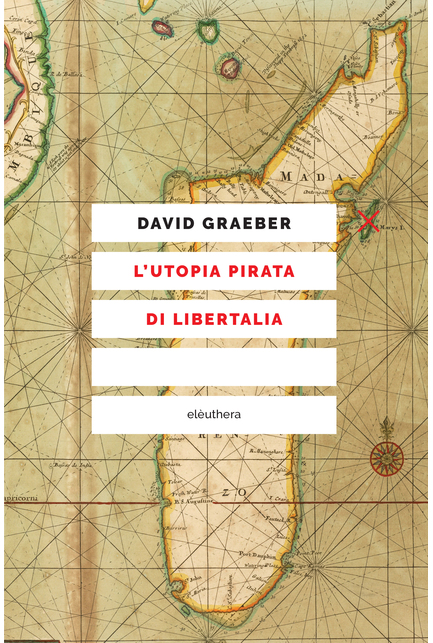
Elena Cantoni
Pages: 216Polish

Russian

Anton Voznesenskiy
Pages: 256Book Review: Pirate Enlightenment, or the Real Libertalia
Flaschenpost
This is a review by Lena Tama, published in the Flaschenpost in 2023
David Graeber Argues that the Enlightenment Was Heavily Influenced by Pirates
Observer
The late anthropologist maintains that the pirate culture of Madagascar was a major influence on thinkers like Hobbes and Locke.
Did pirates advance democracy? David Graeber’s last book makes the case
Los Angeles Times
David Graeber’s posthumous book, “Pirate Enlightenment,” is a reminder of the joys of reading the popular anthropologist.
Egalitarian Paradise Lost: David Graeber and the Pirates of Madagascar
Сounterpunch
How Enlightened Were the Pirates of Madagascar?
The New York Times
In his last book, the iconoclastic anthropologist David Graeber considers evidence that maritime outlaws created utopian political communities on the island in the Indian Ocean.
Noam Chomsky on David Graeber’s Pirate Enlightenment
ArtReview
Nika Dubrovsky speaks to Noam Chomsky about pirate societies, ‘bewildered herds’ and the fragility of the present in the context of the late anthropologist David Graeber’s final book
Pirates and politics
Science
An anthropologist argues that experimental communities in Madagascar influenced the European Enlightenment
The Pirate Philosopher: a Review of David Graeber’s Pirate Enlightenment, or the Real Libertalia
Columbia Journal of Literary Criticism
This is a review by Annelie Hyatt, published in the Columbia Journal of Literary Criticism
David Graeber’s “Pirate Enlightenment”
The true, swashbuckling lives of matriarchs, anarchists, and pirates at the crossroads of the world.
Were pirates pioneering socialists – or just filthy scallywags?
The Telegraph
This is a review by Nikhil Krishhnan, published in the Telegraph, 19Jan2023








